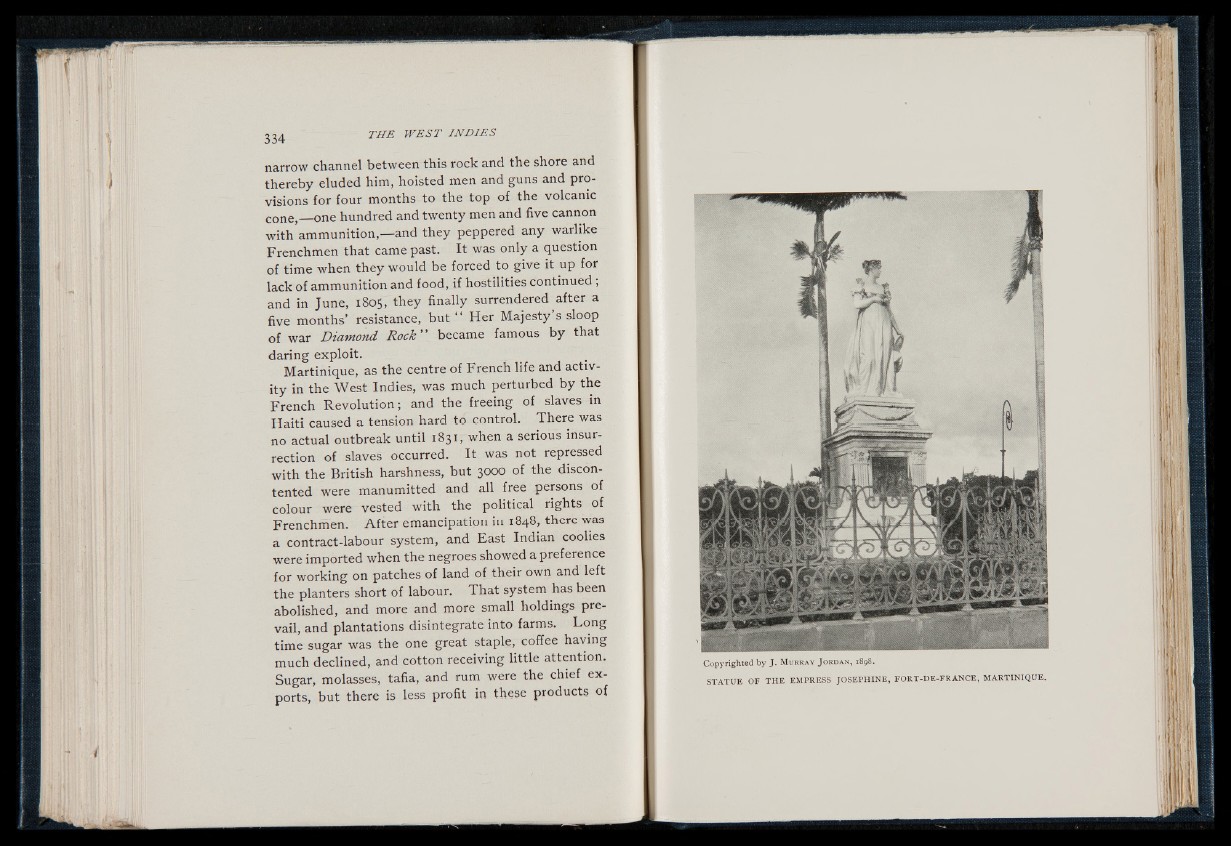
narrow channel between this rock and the shore and
thereby eluded him, hoisted men and guns and provisions
for four months to the top of the volcanic
cone,— one hundred and twenty men and five cannon
with ammunition,— and they peppered any warlike
Frenchmen that came past. It was only a question
of time when they would be forced to give it up for
lack of ammunition and food, if hostilities continued ;
and in June, 1805, they finally surrendered after a
five months’ resistance, but “ Her Majesty’s sloop
of war Diamond Rock ” became famous by that
daring exploit.
Martinique, as the centre of French life and activity
in the West Indies, was much perturbed by the
French Revolution; and the freeing of slaves in
Haiti caused a tension hard to control. There was
no actual outbreak until 1831, when a serious insurrection
of slaves occurred. I t was not repressed
with the British harshness, but 3000 of the discontented
were manumitted and all free persons of
colour were vested with the political rights of
Frenchmen. Afte r emancipation in 1848, there was
a contract-labour system, and East Indian coolies
were imported when the negroes showed a preference
for working on patches of land of their own and left
the planters short of labour. T ha t system has been
abolished, and more and more small holdings prevail,
and plantations disintegrate into farms. Long
time sugar was the one great staple, coffee having
much declined, and cotton receiving little attention.
Sugar, molasses, tafia, and rum were the chief ex ports,
but there is less profit in these products of